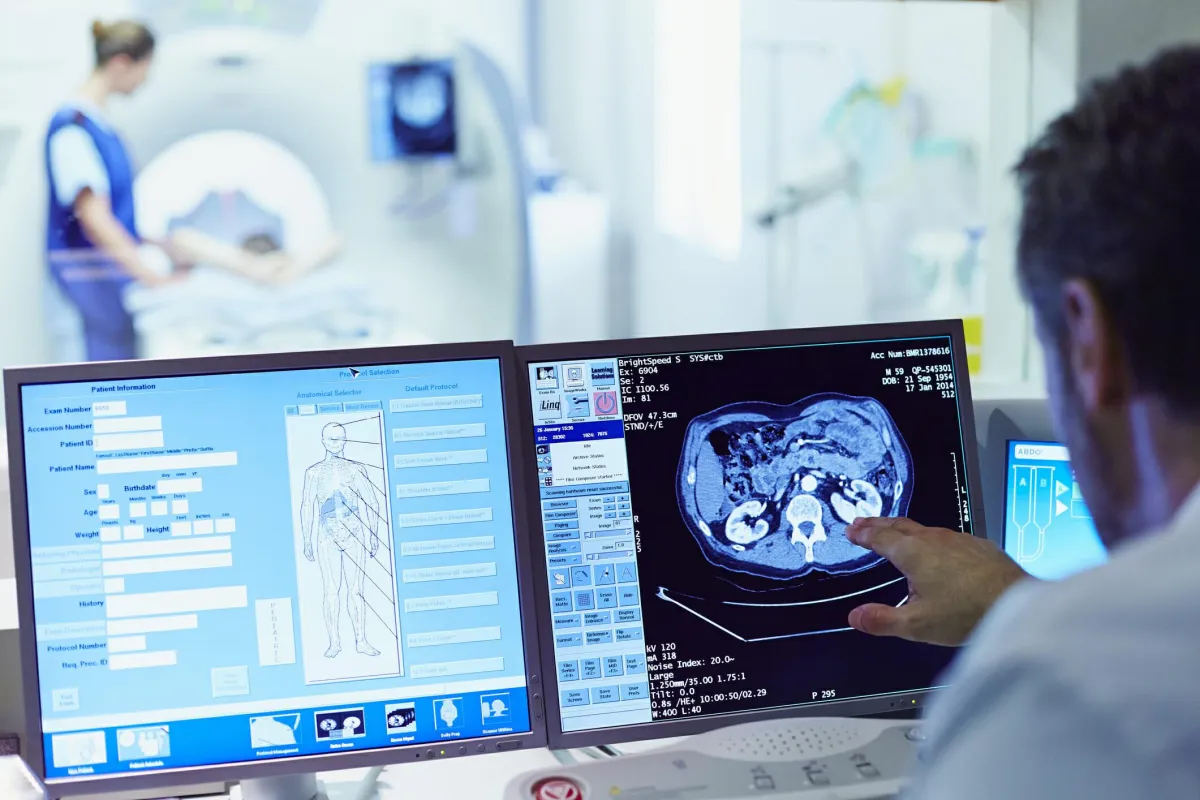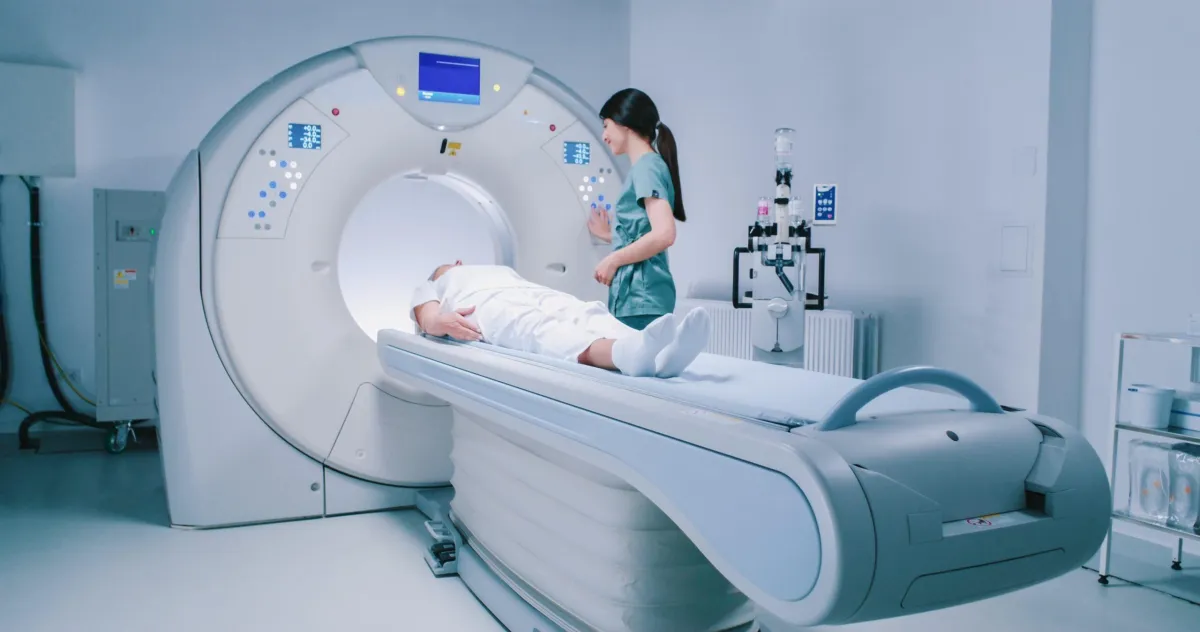MULTIPLE SCLEROSIS (MS)
Multiple Sclerosis: Symptoms, Causes, Diagnosis, and Treatment
What is Multiple Sclerosis?
Multiple Sclerosis (MS) is a chronic autoimmune neurological disease that affects the central nervous system (CNS), including the brain, spinal cord, and optic nerves. In MS, the immune system attacks myelin, the protective layer around nerves. This damage slows or blocks nerve signals, leading to progressive neurological symptoms.
Multiple sclerosis is not contagious and is not always disabling. Many patients effectively manage their symptoms with early diagnosis and ongoing care.
At Mir Neurology, you receive specialized care for multiple sclerosis, focusing on accurate diagnosis, modern treatment, and long-term disease management.
Symptoms of Multiple Sclerosis
MS symptoms differ between patients and can change over time. Common symptoms include:
• Vision loss, blurred vision, or double vision
• Severe fatigue that worsens with heat or activity
• Numbness, tingling, or burning sensations in the arms, legs, or face
• Muscle weakness, stiffness, or spasms
• Balance problems, dizziness, or difficulty walking
• Chronic nerve pain or electric shock sensations
• Memory problems, slowed thinking, or trouble concentrating
• Bladder, bowel, or sexual dysfunction
• Depression, anxiety, or mood changes
Symptoms can appear suddenly during relapses or progress slowly over time.


Types of Multiple Sclerosis
MS follows different disease patterns. The main types include
1. Clinically Isolated Syndrome (CIS)
Clinically Isolated Syndrome (CIS)
A first neurological episode caused by inflammation or demyelination. Not all CIS cases progress to multiple sclerosis, but early treatment can delay progression.
2. Relapsing-Remitting Multiple Sclerosis (RRMS)
The most common form of MS affects about 85 percent of patients at diagnosis. Characterized by relapses followed by periods of recovery with no disease progression between attacks.
3. Secondary Progressive Multiple Sclerosis (SPMS)
Develops after RRMS. Marked by gradual neurological decline, with or without relapses.
4. Primary Progressive Multiple Sclerosis (PPMS)
Affects about 10 to 15 percent of MS patients. Causes steady worsening of symptoms from onset, without clear relapses or remissions.
Causes & Risk Factors
The exact cause of MS is unknown. Research shows a combination of immune, genetic, and environmental factors.
Key risk factors include:
Genetics: Family history of MS increases risk.
Autoimmune dysfunction: The immune system attacks the central nervous system.
Vitamin D deficiency: MS is more common in regions with less sunlight exposure.
Smoking: Increases the risk and severity of MS.
Infections: Certain viral infections (like Epstein-Barr virus) may trigger MS.
MS is more common in women and often begins between ages 20 and 40.


Diagnosis and Treatment at Mir Neurology
Early diagnosis improves long-term outcomes. Mir Neurology offers comprehensive multiple sclerosis evaluation and treatment.
1. Diagnostic Services
• Detailed neurological examination.
• MRI scans of the brain and spinal cord to identify MS lesions.
• Lumbar puncture to detect inflammatory markers in cerebrospinal fluid.
• Blood testing to exclude conditions that mimic MS.
2. Personalized Multiple Sclerosis Treatment
There is no cure for MS, but treatment slows disease activity and reduces disability. Your care plan may include:
• Disease-Modifying Therapies (DMTs) to reduce relapses and delay progression.
• Medications for fatigue, pain, muscle stiffness, and bladder symptoms.
• Physical therapy to improve strength, balance, and mobility.
• Occupational therapy to support daily activities and independence.
• Infusion therapies for moderate to advanced multiple sclerosis.
• Lifestyle guidance focused on nutrition, exercise, and stress control.


Expert Multiple Sclerosis Care in Hagerstown & Cumberland
Mir Neurology provides advanced multiple sclerosis diagnosis and treatment in Hagerstown and Cumberland. You receive care from board-certified neurologists with MS experience, using evidence-based therapies and modern imaging tools.
If you need MS testing, treatment adjustments, infusion therapy, or long-term disease management, our team is ready to support your health and quality of life.
Get Expert Help

If you or a loved one is experiencing memory loss or cognitive decline, early diagnosis is key to effective management. Consult with our neurology specialists for personalized assessment and care plans.
Our Locations
To learn more about our experience or discuss your treatment options, please call us at (301) 797-7600 or schedule a consultation today!
Get our wellness newsletter
Filter out the noise and nurture your inbox with health and wellness advice that’s inclusive and rooted in medical expertise.
Contact Us
Complaint and Queries
(301) 517-7636
About | Careers
© Copyright 2026. Mir Neurology. All Rights Reserved.
A Part of Highland Healthy Living. Powered By CareSyncMarketing



